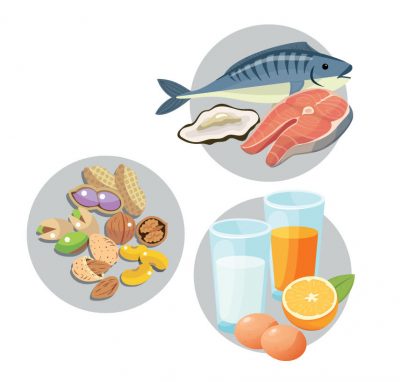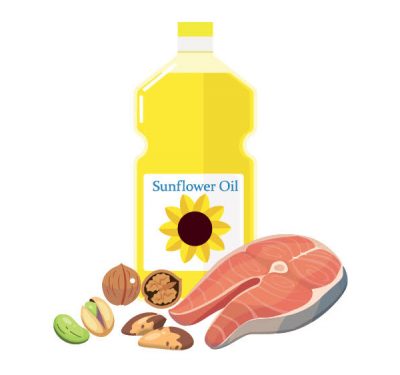Not all fats are bad. In fact some types of fats are crucial for your child’s nutritional needs, while some help to support learning and growth development.
Parents need to ensure their children have sufficient key macro- and micronutrients in their diet as deficiencies can lead to various health and developmental problems, including growth retardation, skin lesions, and fatty liver.
Fat is often linked to weight gain and obesity, but there are different types of fat with different functions. Our body needs fat for certain physiological functions to function smoothly, e.g. help the digestive process, and aid our body in absorbing and transporting vitamins A, D, E, and K .
Your child needs healthy fats
Healthy nutrition is critical for supporting the optimal development for the brain and achieving a positive cognitive outcome. ‘Healthy’ fat plays a crucial role in this, being energy dense and has twice the calories of carbohydrates.
It is important to provide enough (but not too much) of fat in your child’s diet to support growth and development. As long as the appropriate amount of fat intake is observed, you don’t need to be overly worried as an active child still stands to benefit, especially since their tummy is small and they eat smaller quantities than adults.
Essential Fatty Acids & Brain: The human brain is composed of nearly 60% fat, and many studies showed that fatty acids are crucial for proper brain development and function. Hence healthy fats come into the picture with vital nutrients, other than providing energy.
Pick the right fat
So which foods contain the right type of fats? Basically, fat can be divided in two main types:
Saturated fat
- This is the “unhealthy” type, and is mainly found in the fatty part of meat and poultry (e.g. chicken skin), ghee, butter, coconut oil, coconut milk, cakes and biscuits.
- Excessive intake is not recommended as it will raise cholesterol and triglyceride levels over time, leading to clogged arteries and increases heart disease risk.
Unsaturated fats
- These are “healthy” fats, and are either polyunsaturated or monounsaturated. They provide vitamins, antioxidants, and essential fatty acids that our body cannot produce.
- Found in plant sources such as nuts, seeds, vegetable oils and fish.
Supports growth, development & learning
As unsaturated fats are necessary, these should be in your child’s diet, but in moderation. For instance, polyunsaturated fatty acids (PUFAs) are one of the major components of the human eye and brain and if your child does not receive enough dietary supply of key fatty acids, he will experience impairments in cognitive and behavioural performance.
PUFAs (e.g. Omega 3 & 6, DHA, ALA) cannot be made by the body yet are required for learning, growth and development. Dietary sources for PUFAs include: 
- Fish/seafood, such as oily fish (salmon, tuna, sardine) and marine fish (kembong, siakap, etc), fish oil and shellfish (e.g. cockles, oysters)
- Edible plant seeds and nuts, e.g. beans, dhall, peanuts
- Enriched foods: Omega-3 enriched eggs, milk, fruit juices
The milk fat globule membranes (or MFGM, the membrane surrounding the fat droplets) that may be added into formulated milk powder is also a good source for PUFAs. MFGM is a complex protein-lipid membrane surrounding the fat globules in milk, and studies show it has many healthful benefits, including supporting the development of the innate and adaptive immune system. It also plays a significant role in supporting neurodevelopment and shaping the maturing immune system and gut microbiota.
Growing up strong
Parents must always keep in mind that no single food can support child growth and development so avoid over-focusing on any one particular nutrient. Your child’s nutritional needs should depend on a healthy combination of various types of food, including foods containing good fats while reducing intake of unhealthy fats, commonly in deep fried food.
A healthy, nutritious diet should encompass the basics such as the principles of balance, moderation and variety (BMV), and meals should be based on the Malaysian Food Pyramid. These should be supported with other basics of good health, i.e. getting enough sleep every day and stay physically active daily.
An educational collaboration with Nutrition Society of Malaysia.








Comments